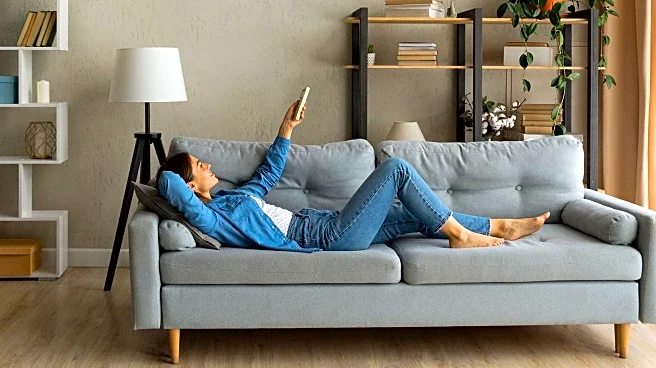What's Happening?
As summer temperatures rise, smart air conditioners are becoming increasingly popular among homeowners and renters seeking efficient climate control solutions. These devices offer automation, remote control activation, and compatibility with smart home ecosystems, allowing users to monitor and adjust their home's temperature from anywhere using a smartphone. Smart air conditioners connect to Wi-Fi and integrate with voice assistants like Alexa, Google Assistant, and Siri, enabling features such as scheduling, geofencing, and real-time energy usage feedback. This technology is particularly beneficial for those living in spaces without central HVAC systems, offering compact and powerful cooling options for individual rooms. Smart portable air conditioners provide flexibility and mobility, making them ideal for renters and spaces without suitable windows for traditional units.
Why It's Important?
The adoption of smart air conditioners represents a significant shift towards energy-efficient and convenient home cooling solutions. By enabling remote control and automation, these devices can help reduce electricity costs and improve overall energy efficiency. This is particularly important as energy bills continue to rise during peak summer months. The integration of smart technology into air conditioning systems also reflects broader trends in home automation, where consumers increasingly seek devices that offer both comfort and cost-effectiveness. As the technology evolves, smart air conditioners are becoming more accessible, providing a viable option for a wider range of consumers, including those in urban apartments and homes without central air conditioning.
What's Next?
The continued development and adoption of smart air conditioners are likely to drive further innovation in home climate control technology. Manufacturers may focus on enhancing connectivity features, improving energy efficiency, and expanding compatibility with various smart home ecosystems. As consumer demand grows, more models with diverse features and price points are expected to enter the market, catering to different needs and preferences. Additionally, advancements in smart technology could lead to more integrated solutions that combine air conditioning with other home automation systems, offering seamless control over multiple aspects of home environment management.









